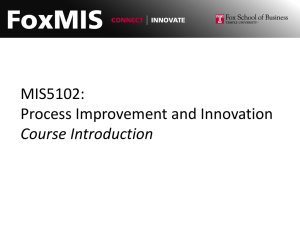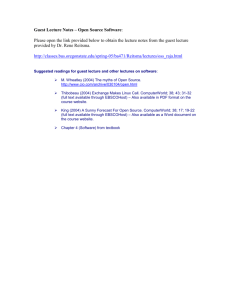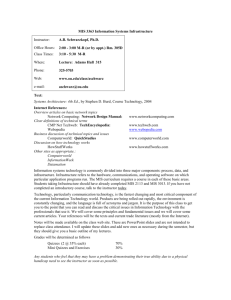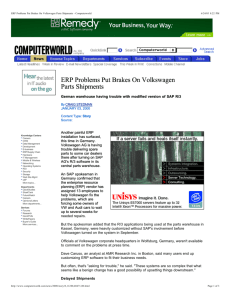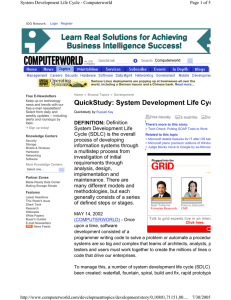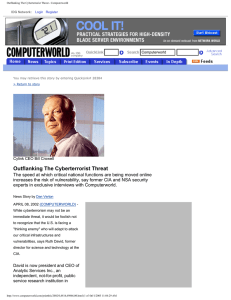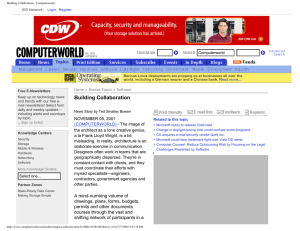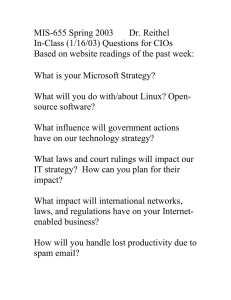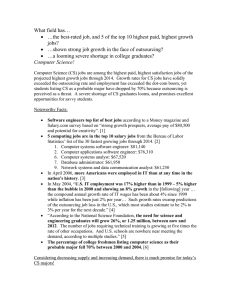How not to get "offshored" By Robert L. Mitchell
advertisement
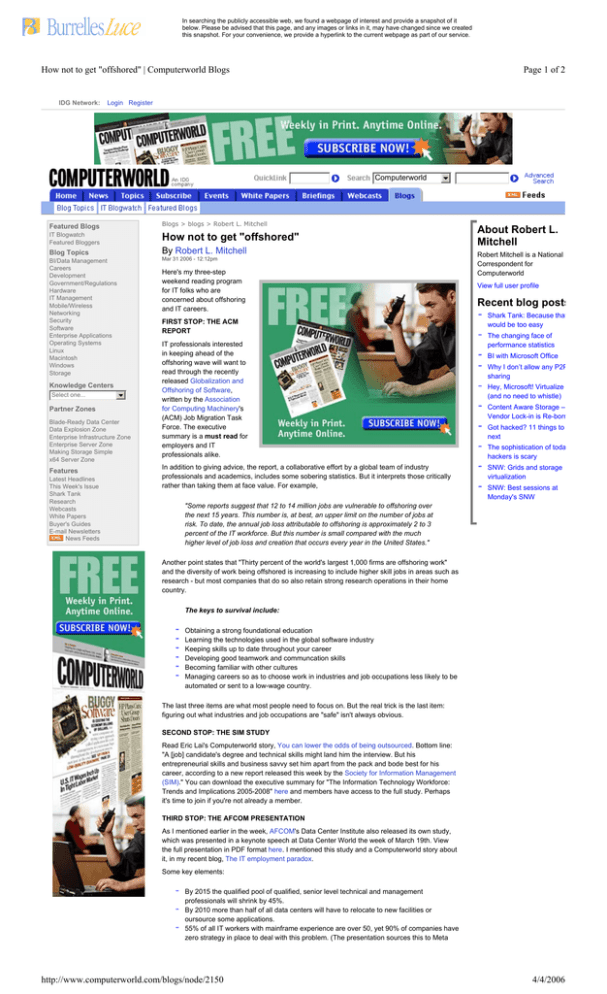
In searching the publicly accessible web, we found a webpage of interest and provide a snapshot of it below. Please be advised that this page, and any images or links in it, may have changed since we created this snapshot. For your convenience, we provide a hyperlink to the current webpage as part of our service. How not to get "offshored" | Computerworld Blogs IDG Network: Page 1 of 2 Login Register Computerworld Featured Blogs Blogs > blogs > Robert L. Mitchell IT Blogwatch Featured Bloggers How not to get "offshored" Blog Topics BI/Data Management Careers Development Government/Regulations Hardware IT Management Mobile/Wireless Networking Security Software Enterprise Applications Operating Systems Linux Macintosh Windows Storage Knowledge Centers Select one... Partner Zones Blade-Ready Data Center Data Explosion Zone Enterprise Infrastructure Zone Enterprise Server Zone Making Storage Simple x64 Server Zone Features Latest Headlines This Week's Issue Shark Tank Research Webcasts White Papers Buyer's Guides E-mail Newsletters News Feeds By Robert L. Mitchell Mar 31 2006 - 12:12pm Here's my three-step weekend reading program for IT folks who are concerned about offshoring and IT careers. FIRST STOP: THE ACM REPORT IT professionals interested in keeping ahead of the offshoring wave will want to read through the recently released Globalization and Offshoring of Software, written by the Association for Computing Machinery's (ACM) Job Migration Task Force. The executive summary is a must read for employers and IT professionals alike. In addition to giving advice, the report, a collaborative effort by a global team of industry professionals and academics, includes some sobering statistics. But it interprets those critically rather than taking them at face value. For example, About Robert L. Mitchell Robert Mitchell is a National Correspondent for Computerworld View full user profile Recent blog posts Shark Tank: Because that would be too easy The changing face of performance statistics BI with Microsoft Office Why I don’t allow any P2P sharing Hey, Microsoft! Virtualize (and no need to whistle) Content Aware Storage – Vendor Lock-in is Re-born Got hacked? 11 things to next The sophistication of toda hackers is scary SNW: Grids and storage virtualization SNW: Best sessions at Monday's SNW "Some reports suggest that 12 to 14 million jobs are vulnerable to offshoring over the next 15 years. This number is, at best, an upper limit on the number of jobs at risk. To date, the annual job loss attributable to offshoring is approximately 2 to 3 percent of the IT workforce. But this number is small compared with the much higher level of job loss and creation that occurs every year in the United States." Another point states that "Thirty percent of the world's largest 1,000 firms are offshoring work" and the diversity of work being offshored is increasing to include higher skill jobs in areas such as research - but most companies that do so also retain strong research operations in their home country. The keys to survival include: Obtaining a strong foundational education Learning the technologies used in the global software industry Keeping skills up to date throughout your career Developing good teamwork and communcation skills Becoming familiar with other cultures Managing careers so as to choose work in industries and job occupations less likely to be automated or sent to a low-wage country. The last three items are what most people need to focus on. But the real trick is the last item: figuring out what industries and job occupations are "safe" isn't always obvious. SECOND STOP: THE SIM STUDY Read Eric Lai's Computerworld story, You can lower the odds of being outsourced. Bottom line: "A [job] candidate's degree and technical skills might land him the interview. But his entrepreneurial skills and business savvy set him apart from the pack and bode best for his career, according to a new report released this week by the Society for Information Management (SIM)." You can download the executive summary for "The Information Technology Workforce: Trends and Implications 2005-2008" here and members have access to the full study. Perhaps it's time to join if you're not already a member. THIRD STOP: THE AFCOM PRESENTATION As I mentioned earlier in the week, AFCOM's Data Center Institute also released its own study, which was presented in a keynote speech at Data Center World the week of March 19th. View the full presentation in PDF format here. I mentioned this study and a Computerworld story about it, in my recent blog, The IT employment paradox. Some key elements: By 2015 the qualified pool of qualified, senior level technical and management professionals will shrink by 45%. By 2010 more than half of all data centers will have to relocate to new facilities or oursource some applications. 55% of all IT workers with mainframe experience are over 50, yet 90% of companies have zero strategy in place to deal with this problem. (The presentation sources this to Meta http://www.computerworld.com/blogs/node/2150 4/4/2006 How not to get "offshored" | Computerworld Blogs Page 2 of 2 Group and was AFCOM's member survey. This subject will be part of an upcoming feature I am working on. That story - a follow up to the feature Morphing the Mainframe will appear in the April 24th issue of Computerworld.) If you do your reading this weekend I won't guarantee that you'll have all of the answers, but you'll certainly have a good grip on the issues and trends that could affect your career going forward. Trackback URL for this post: http://www.computerworld.com/blogs/trackback/2150 April 1 foolishness (and fact hunt) from Computerworld Blogs on Mon, 04/03/2006 - 11:01am If it's Monday, it must be IT Blogwatch, in which we miss April Fools day ... or did we? Not to mention some uncommon facts (many of which are, surprisingly, true) ... New jobs to get ready for from Offshore, Onshore: The Fuss about Outsourcing on Fri, 03/31/2006 - 4:08pm Time for some predictions.... The Association for Computing Machinery says that some of the ways to decrease your chances of getting "offshored" are "obtaining a strong foundational education, learning the technologies used in the global software industry Technology and business makes a balanced match from Computerworld Blogs on Fri, 03/31/2006 - 1:31pm Finally there's agreement that successful technology management requires more than just technology skills. This article at Computerworld details a report released by the Society for Information Management that shows organizations are desperate for IT peo The IT employment paradox from Computerworld Blogs on Fri, 03/31/2006 - 1:14pm In Aging Workers, Automation Portend IT Hiring Problems, Pat Thibodeau points out a paradox in the IT hiring space. An AFCOM study of 179 IT managers revealed that: Nearly half said it takes takes them a minimum of three months to fill senior-level tec Careers | Government/Regulations | IT Management | Outsourcing | Robert L. Mitchell's blog Offshoring or Oustourcing Offshoring or Oustourcing for that matter is not something that is going away in the years to come. Though that is the case, practicing these methods that you mentioned could be a great help in order for a person not to lose a job because of such business trend. By elaine (not verified) at Mon, 04/03/2006 - 9:17am | reply Post new comment Your name:* Anonymous E-mail:* The content of this field is kept private and will not be shown publicly. Homepage: Comment:* Formatting guidelines: Allowed HTML tags: <a> <em> <strong> <cite> <blockquote> <code> <ul> <ol> <li> <dl> <dt> <dd><b><i><span> Lines and paragraphs break automatically. More information about formatting options Preview comment IDG Network: Computerworld titles Bio-IT World CIO IT Careers JavaWorld.com Macworld CMO CSO Darwin GamePro GameStar.com GamerHelp.com MacCentral.com Network World PC World Playlistmag.com Infoworld Copyright © 2005 Computerworld Inc. All rights reserved. Reproduction in whole or in part in any form or medium without express written permission of Computerworld Inc. is prohibited. Computerworld and Computerworld.com and the respective logos are trademarks of International Data Group Inc. http://www.computerworld.com/blogs/node/2150 4/4/2006
